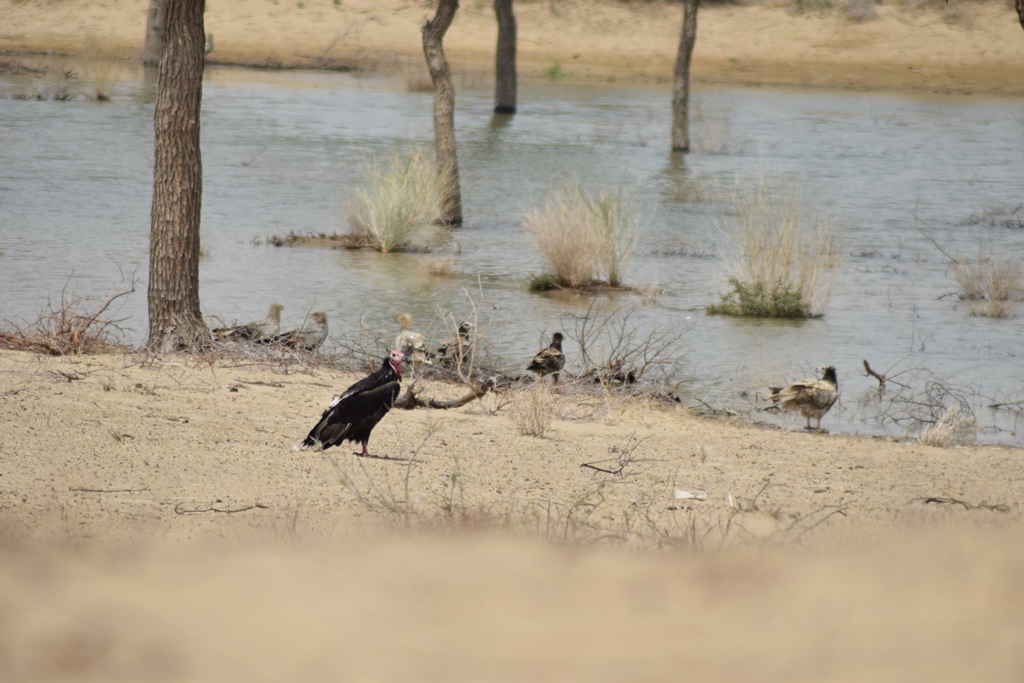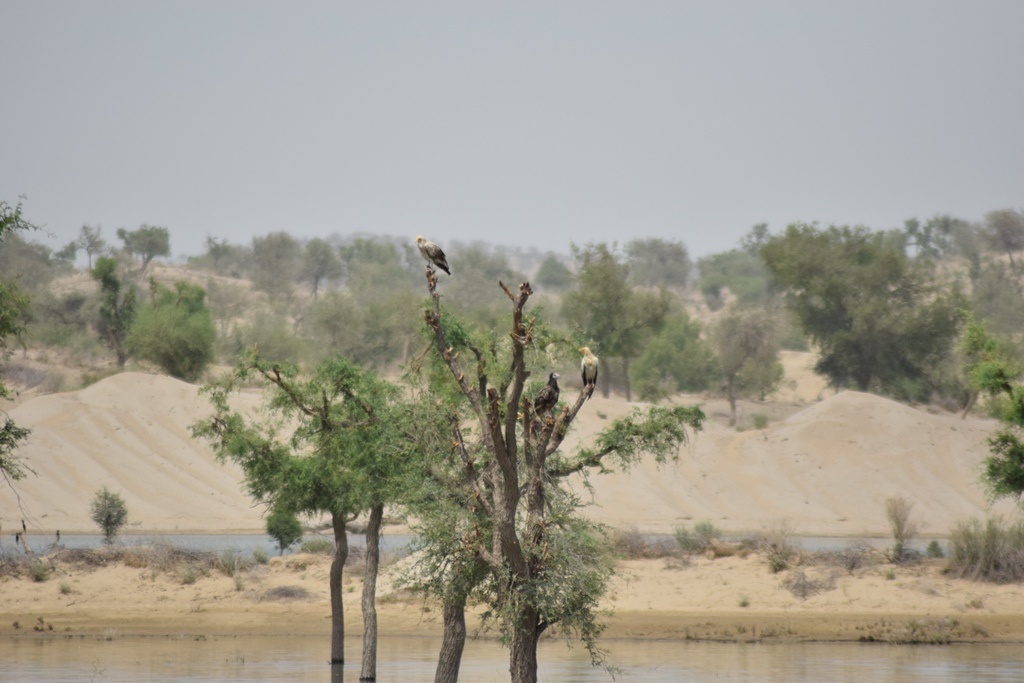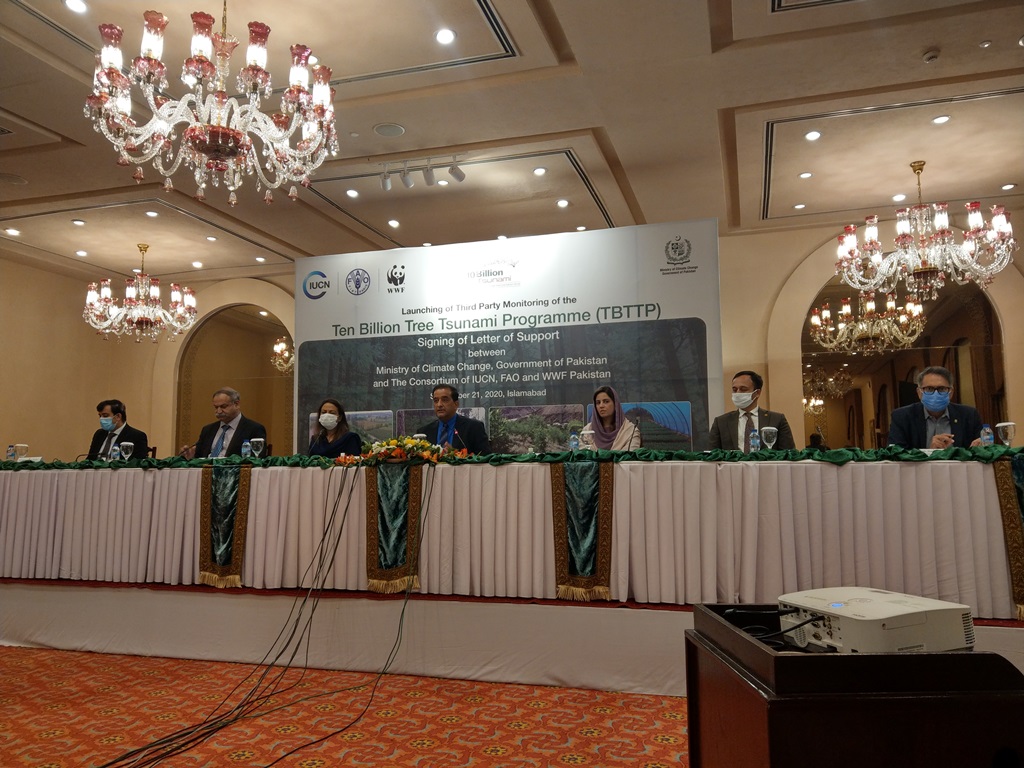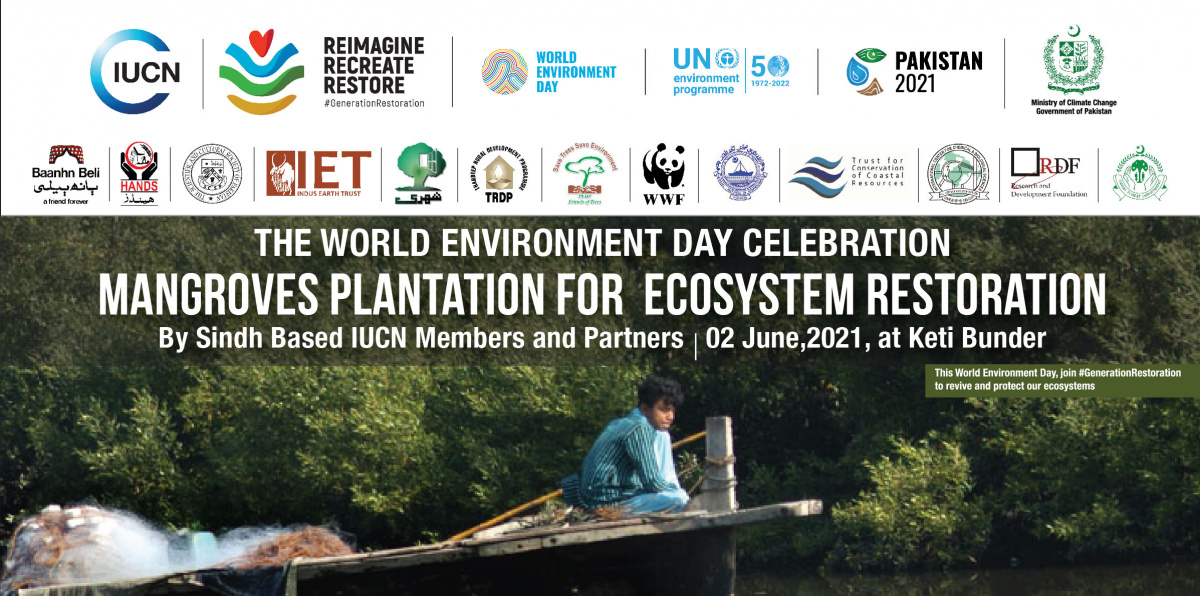Thar identified as the Vulture Safe Zone in Pakistan
ISLAMKOT, THARPARKAR: (Thursday, 19 September 2019) While a massive decline in vulture populations have been witnessed across Pakistan over the years, Tharparkar has been identified as a major sanctuary for these scavenging birds, as revealed in a pre-monsoon survey undertaken by IUCN (International Union for Conservation of Nature).
IUCN in collaboration with Sindh Wildlife Department, the Zoological Survey of Pakistan, and Baanhn Beli with the financial support of Sindh Engro Coal Mining Company (SECMC) carried out the survey, as part of an ongoing vulture conservation project.
The survey’s geographic scope however covered the entire Sindh province. Tharparkar, however, was the only place in Sindh where significant numbers of vultures were spotted whereas Khirthar National Park has been identified as one of the new potential sites for vulture population. Based on the survey and literature review, it can be assumed that Garano wetland, created some 50 kilometres away from Thar coal mines site, is emerged as the most populated habitat of vultures in Pakistan.
Vultures are specialized scavengers that have adapted in unique ways to consume dead animals. With this trait they provide significant ecosystem services, that include keeping the environment clean and reducing disease transmission risks.
The pre-monsoon reconnaissance survey was carried out by a diverse team of six including IUCN experts, independent consultants, ornithologist, veterinarian, and field ecologists.
The survey reported spotting of over 450 White-backed, Long-billed, Red-headed, and Egyptian vultures in Tharparkar and a much smaller number in the Kirthar Range. In Tharparkar, Gorano wetland at Thar coal mines site was found to have the potential for attracting bird populations since there a significant number of 425 vultures of White-backed, Red-headed, and Egyptian species spotted during this survey.
The survey recommends creation of vulture safe zones in areas where there are existing vulture populations in Sindh. This includes Tharparkar, Khirthar National Park, and the Gorakh hill areas.
It also recommends alternative drugs for livestock which are not toxic for vultures, through a strict enforcement of ban by drug regulatory authority on NSAIDS harmful for vultures. NSAIDs available for human use should also be clearly labelled with caution “NOT FOR LIVESTOCK USE”.
Naveed Soomro, Project Coordinator at IUCN said that most studies in the past on vultures in Sindh have concentrated on Nagarparkar alone; one of the last remaining strongholds of vulture populations or have conducted surveys in the breeding season only with limited scope. Syed Abul Fazal Rizvi, Chief Executive Officer (CEO) of SECMC said that nature conversation is integral part of our policy while working in Thar, the most natural ecological zone of the region.
“We are specially focusing to conserve vultures in Thar and for the purpose, IUCN and engaging Pakistan’s top bird specialist have been a great support for the cause,” he said. Dr. Z.B Mirza, a renowned bird specialist in Pakistan said that the ICUN report includes observations on the state of the habitats, particularly of the pasturelands and of the lopped fodder trees.
“Unfortunately, the veterinary drugs that are toxic to vultures were found in use all over Sindh with no awareness on its deleterious effects amongst its users, while it is encouraging that Nagarparkar and Islamkot sub-divisions of Tharparkar are the only areas in Sindh where the use of Meloxicam (NSAID alternative drug, safe for vultures) is seen during the survey. There were also signs of significant habitat degradation. The outcomes of this survey highlight the need for strict implementation of vulture safe zones and awareness campaigns,” Dr. Mirza noted.
“Pakistan is fortunate to host 8 of the 9 vulture species found in Asia. Unfortunately, vulture populations of all species have been plummeting since the 1990’s and there have been no major signs of recovery. The biggest threat to vultures in Pakistan has been identified as the use of veterinary non-steroid anti-inflammatory drugs (NSAID) such as Diclofenac, on livestock that transfers to vultures in higher volumes when they consume those livestock carcasses,” added Mr. Mahmood Akhtar Cheema, Country Representative, IUCN Pakistan.
Diclofenac was banned for use on domestic livestock in Pakistan in 2006. Research in this area has also highlighted the growing threat of habitat degradation, tree lopping, and scarcity in food availability due to changing dead livestock disposal practices.
For more information, please contact:
GeorgeSadiq
Programme Officer
Education Communication and Outreach
Cell: 0303-3332127
E-mail: george.sadiq@iucn.org





